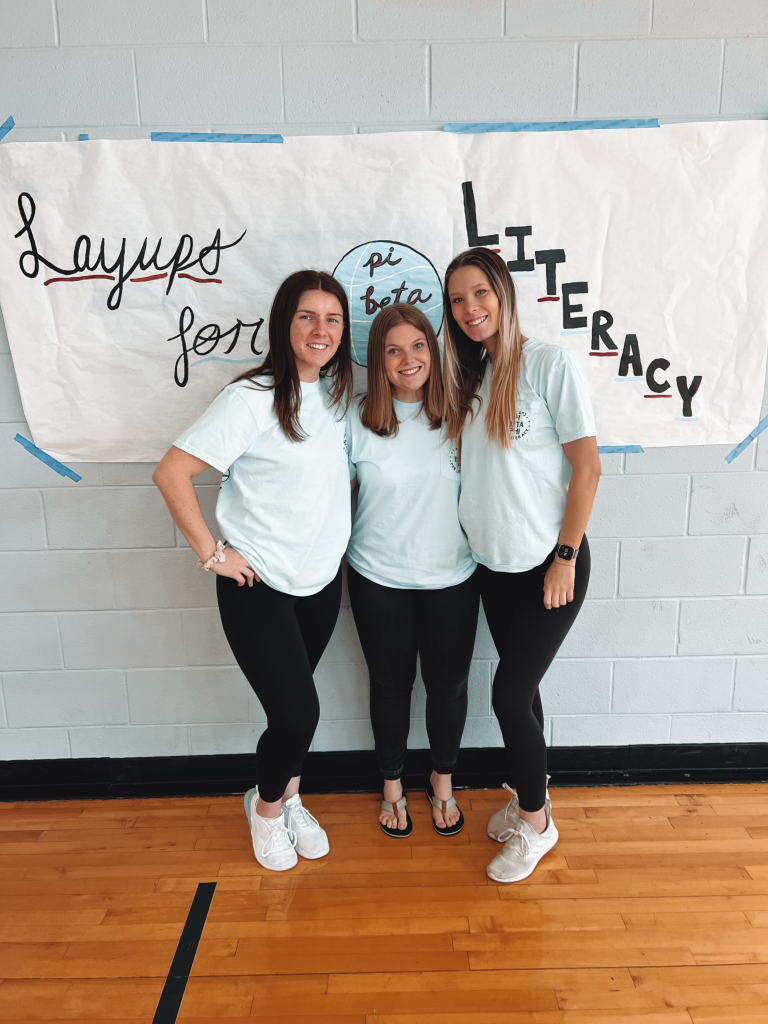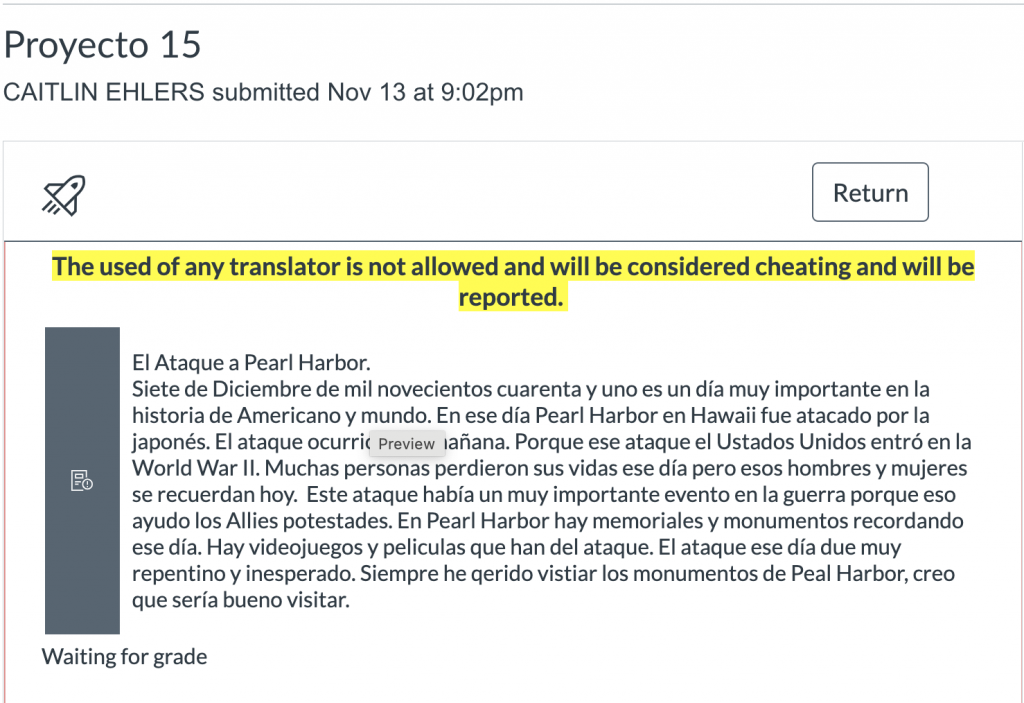Interpretive, Interpersonal, and Presentational Modes of Communication
Throughout the duration of this course I found that my biggest strength for this class was actually speaking the language. During my last spanish course speaking the language was very difficult for me, however I worked very hard overcome this struggle. One way I was able to overcome this difficulty was buy setting aside more time to really practice how to pronounce words, and then moving to phrases.
Exploring Culture
For the online textbook, there was always a section where I had to do research into a spanish speaking country and their culture or things that were popular for them. Doing this exercise gave me more knowledge about the differences and similarities between spanish speaking countries and the United States. Many of the things I learned from those exercises I did not know about before, so it was a very interesting and fun task to do.
One practice that I learned that many spanish speaking countries practice is when they eat and how large meals are. In America we tend to eat our dinners around 5:30, however, in many spanish speaking countries, I learned they eat their dinner very late compared to what I am used to. That was something that was odd for me to think about or grasp because when they are eating their final meal for the day, most Americans are getting ready for bed or are already in bed. So this aspect of their way of life was really hard for me to understand because it is not something that people born in the United States tend to follow on an everyday basis.
Engaging in Communities

I think interaction and engagement within local communities is so important. Not only does it teach someone the impact that they can make in someone’s life, but it also teaches the diversity of the community around you. With that lesson, engaging in your community can give you lifetime connections, and it could also change someone’s life for the better.
For me, interaction in the community around me impacted my life so much. Being apart of greek life on Old Dominions campus has given me so many opportunities to get involved in my community to help make a difference. Interacting with the local community to raise money and awareness for children illiteracy is something that taught me the importance of being involved within my local community, which also affects the global community- in a positive way.
Interpersonal Communication
For this class, we were required to participate in two TalkAbroad conversations. I enjoyed both of the conversations I did because they taught me so much more than a textbook did I believe. We also had assignments called Flipgrids which were extremely beneficial to me as well. Any assignment we did that required me to speak helped me more than assignments where I had to write things out.
Normally with a TalkAbroad assignment, I like to plan ahead with many questions and responses so I know what I am getting myself into. However, I realized after many speaking assignments in the class, I no longer need that kind of preparation. When the conversation started, words just began to flow and I felt like more of a natural every time I spoke in spanish, whether it was for an oral exam, TalkAbroad conversation, or a Flipgrid. I fully believe that TalkAbroad is such a great asset to students who are learning a foreign language.
One main difficulty I did have at first was not knowing what questions would be asked of me, especially during oral exams so I had to think of things off the top of my head. However when I felt like I would not do well on a speaking assignment, I would go over my vocabulary and endings of tenses to ensure that I was at least using the correct tense as well as including vocabulary so context clues could be used if it did not fully make sense.
In this clip, it shows that I did preform well on my TalkAbroad as I got full credit for the assignment.

Presentational Speaking
I did not take part in any presentational speaking outside of this course, as I am still not fully comfortable with the language outside of the course. However, I did do a good amount of video responses for this course which helped with my fluency in spanish.
For presentational speaking I would say I did a good amount of it in the class as we were required to do a TalkAbroad assignment, as well as oral presentations with our professor. For both assignments I received 100% so I feel confident that my practice with speaking really showed in my grades.


Presentational Writing
In this course, we did many assignments where we had to write in spanish. I never had to create a blog, or flyer however I did have to write a short story. I decided to write a short story on the attack on Pearl Harbor.
It was difficult to write this short story as I had to look up how to spell certain words, however I feel that it helped me become more confident in places that I needed the improvement. Mostly with which tense to use and when is something I struggle the most with. I feel that something I could have worked on for this assignment was to be a bit more descriptive however, I was unsure how to do so. I did enjoy writing the short story, as with every other assignment that I have done for this class, it has helped me grow as a spanish speaker.

Interpretive Listening
Some interpretive listening that I did throughout the semester took place in homework assignments. There were many assignments where I would play a piece of something and I would have to write what I heard.
Interpretive listening is something that I struggled with a lot at the beginning of the semester. After a lot of practice with the online textbook, going to places where I would hear the spanish language, and even listening to music and podcasts in spanish, I slowly started to be more confident in listening to the language. I have grown significantly from the start of the semester to the end of the semester with this activity. One way I overcame this difficulty was by practicing every single day and listening to the language every day as well.
Most of the time, in the beginning at least, the hardest part for me was being able to keep up with what the voice on the recording was saying. It was difficult to really understand anything the voice was saying because I was not used to the speed, however after my practice, that difficulty no longer stood in my way.
This is one Podcast that I listened to that helped me understand a little more of the language, there is the same podcast that was posted in english, so when I listened to the podcast in spanish I had a basis to go off of.
Interpretive Reading
Because I have a six month old child, who I would love to raise to be bilingual, some of his bedtime stories I will read to him in spanish. This not only teaches him the language, but it also helped me with the language. This was really the only kind of reading that I did outside of the classroom, but it really did strengthen my ability to read and speak the spanish language. One of the short stories I would read my son was “El amor de la lluvia y el sol” by María Bautista.
One main challenge I had when I started doing this was, I realized that I did not know many of the words that were in the short story, so to practice I would listen to the short story first and then I would read it to my son. After a while of reading him different stories, when I would see an object that was talked about in the short story, rather than calling saying the word in english, I found myself saying the objects spanish term. Reading really helps me to be able to look at the words I am saying so I am able to see the way it’s spelled to help with pronunciation. With doing this activity I feel that it helped my knowledge of reading the spanish language significantly, because before I even struggled with the most basic questions or phrases in spanish trying to read them.
I did find it interesting after a while of reading the stories I began to pick up on reading and speaking without hesitation, something I was not able to do before. I never thought that I would be able to pick up on a language simply by reading it, but I proved myself wrong by being able to identify objects in spanish and english, even words that I did not know before in spanish.